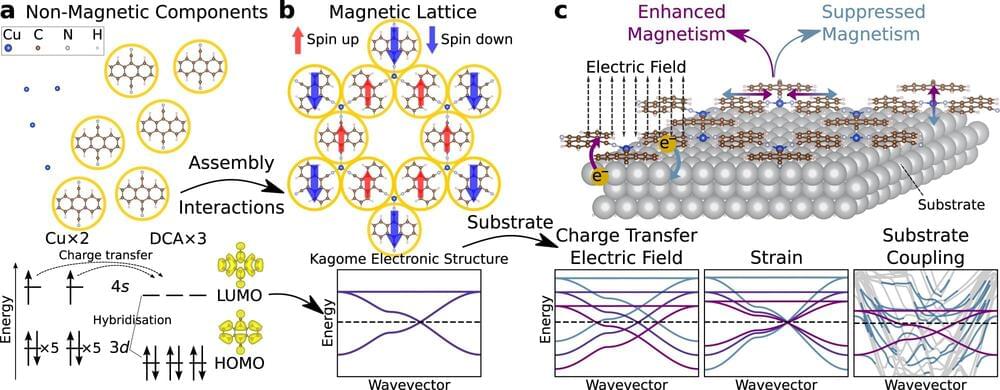A new study at Monash University illustrates how substrates affect strong electronic interactions in two-dimensional metal-organic frameworks.
Materials with strong electronic interactions can have applications in energy-efficient electronics. When these materials are placed on a substrate, their electronic properties are changed by charge transfer, strain, and hybridization.
The study also shows that electric fields and applied strain could be used to “switch” interacting phases such as magnetism on and off, allowing potential applications in future energy-efficient electronics.
